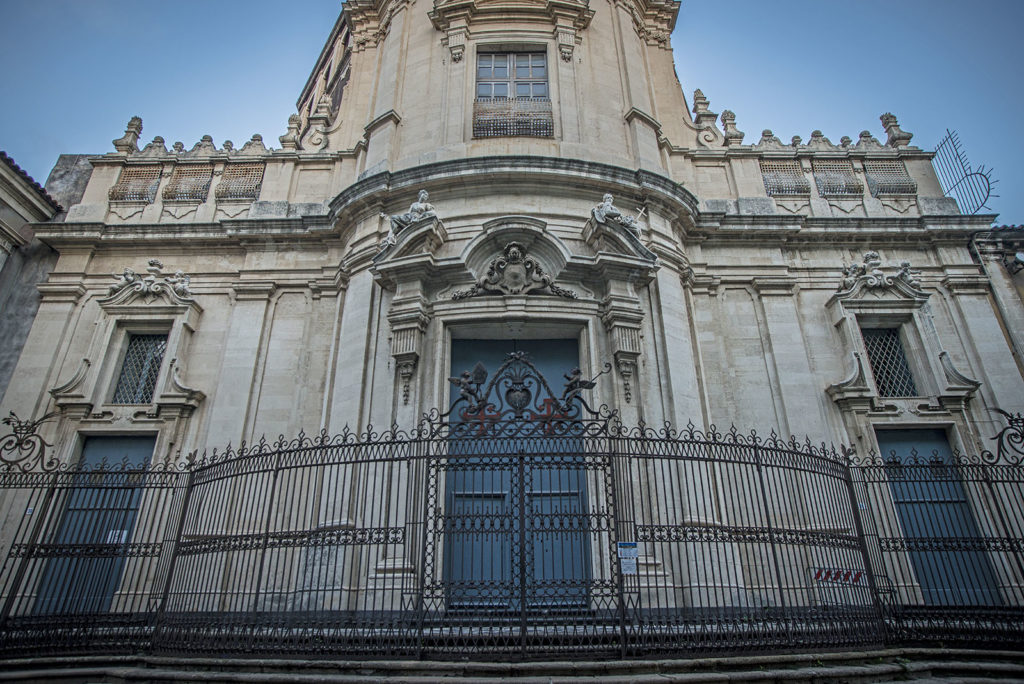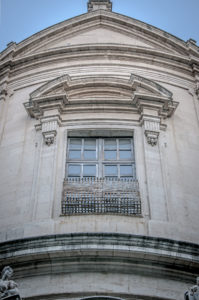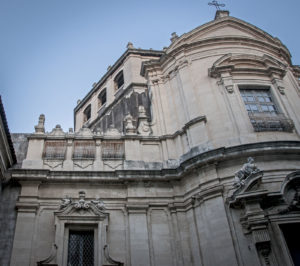The church of San Giuliano (St. Julian) has a majestic white marble façade protected by a tall wrought iron gate.

One of the structure’s most characteristic elements is undoubtedly the belly of the central section. The façade is also divided into two levels: the first contains the portals, but only the middle one grants access to the church; the second features seven
louvre
, windows, with the largest in the centre. The marble façade contrasts with the large octagon of the dark grey
lava stone
dome. A white stone
loggia
was built on it, which allowed the nuns to admire the city, and above all to watch the procession of
St. Agatha
passing along Via dei Crociferi.


The interior was enchanting! Plays of light and colour create an incredible atmosphere in the church.
Small and cosy thanks to the
Greek cross
central plan
, the church
floor
immediately catches the eye, with white and red geometric designs. The white walls are illuminated by gold which outlines the edges and the most important elements. The church was also enriched by four chapels whose artwork broke up the white of the walls.